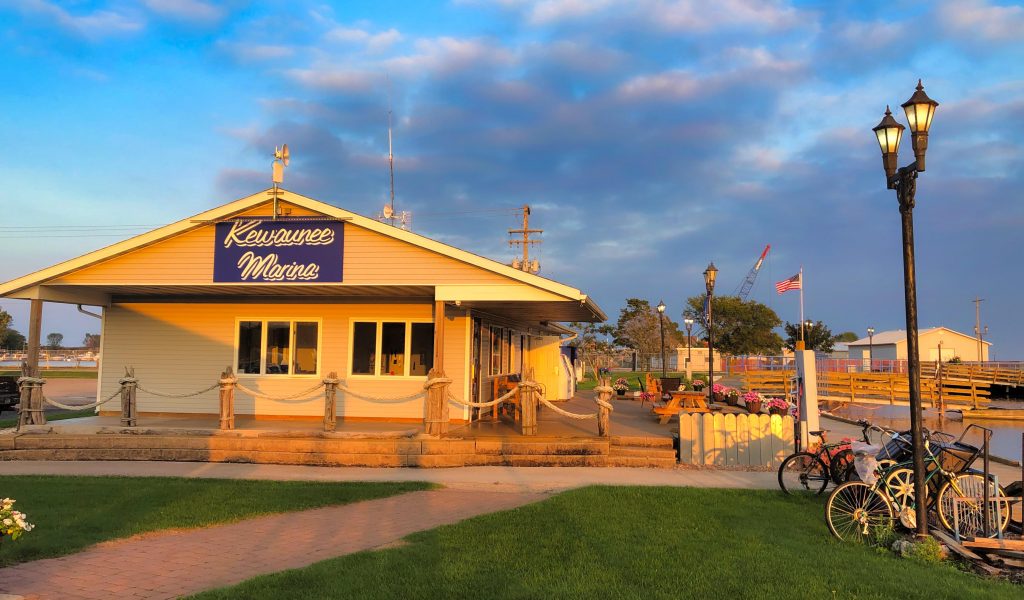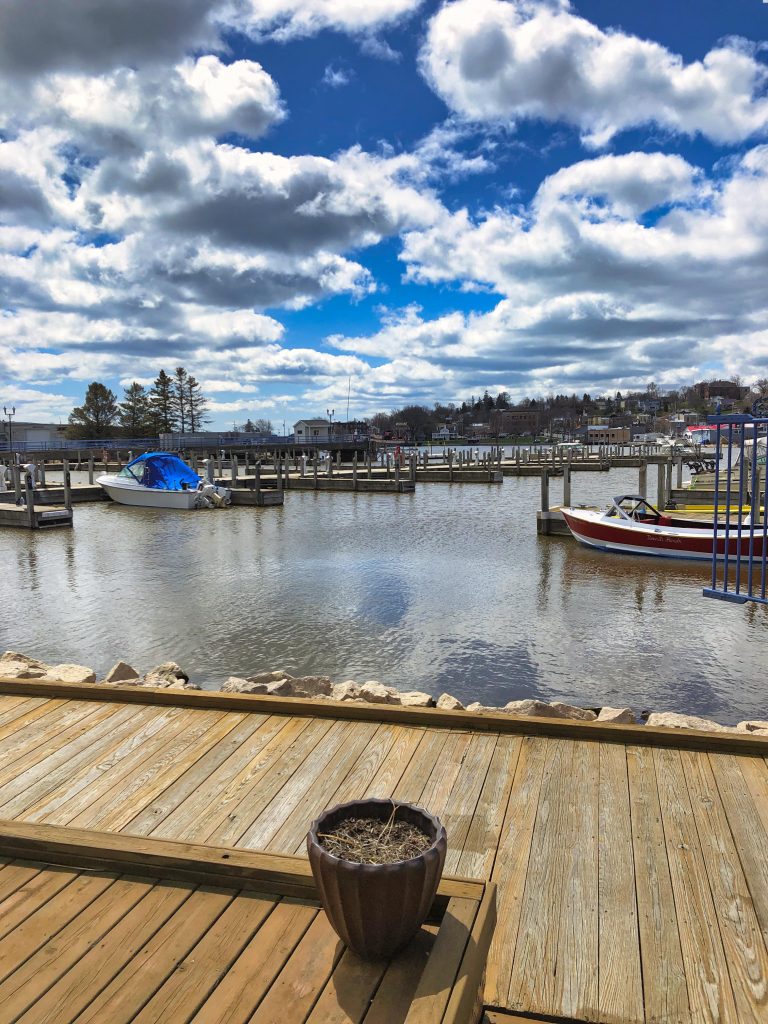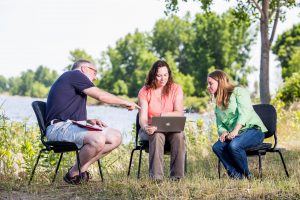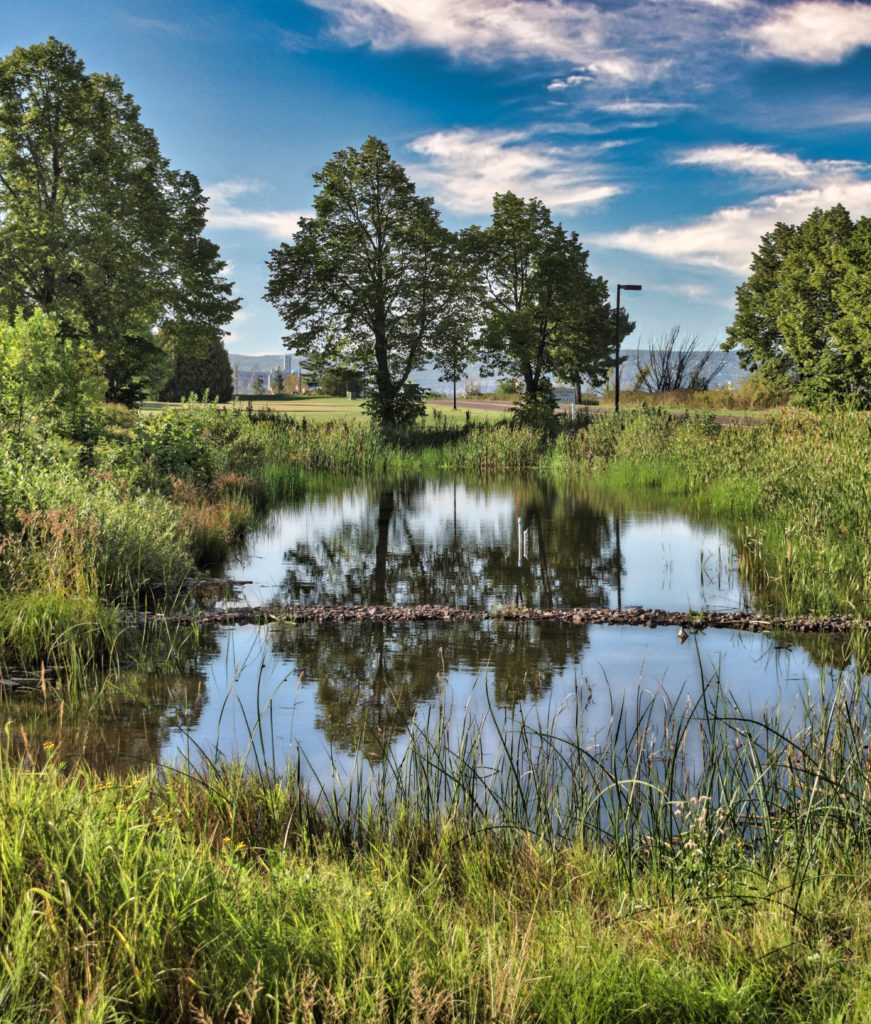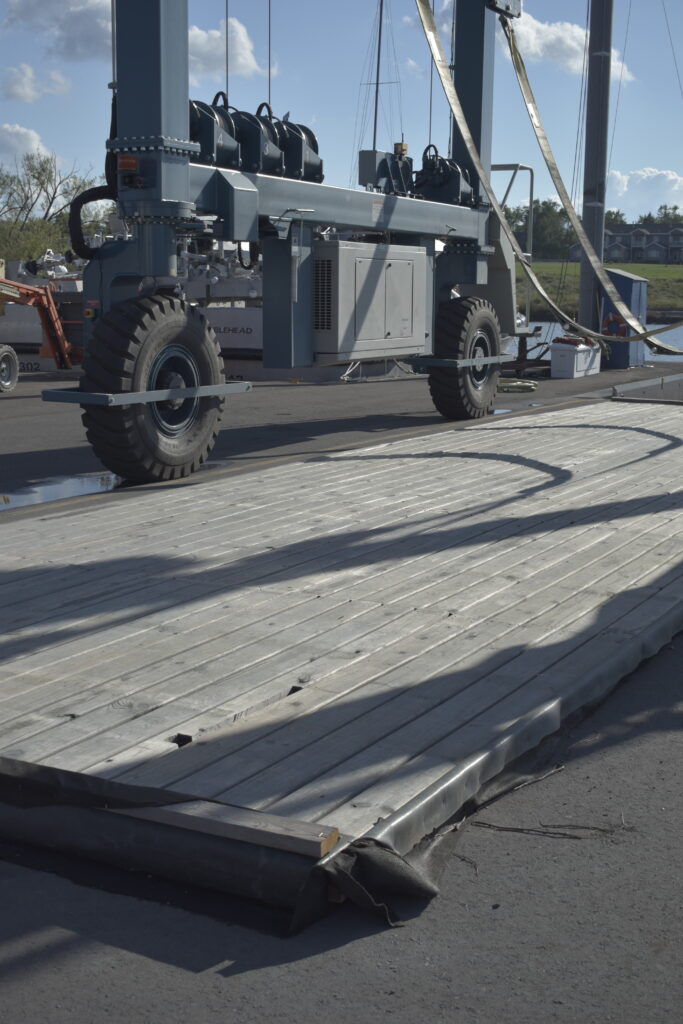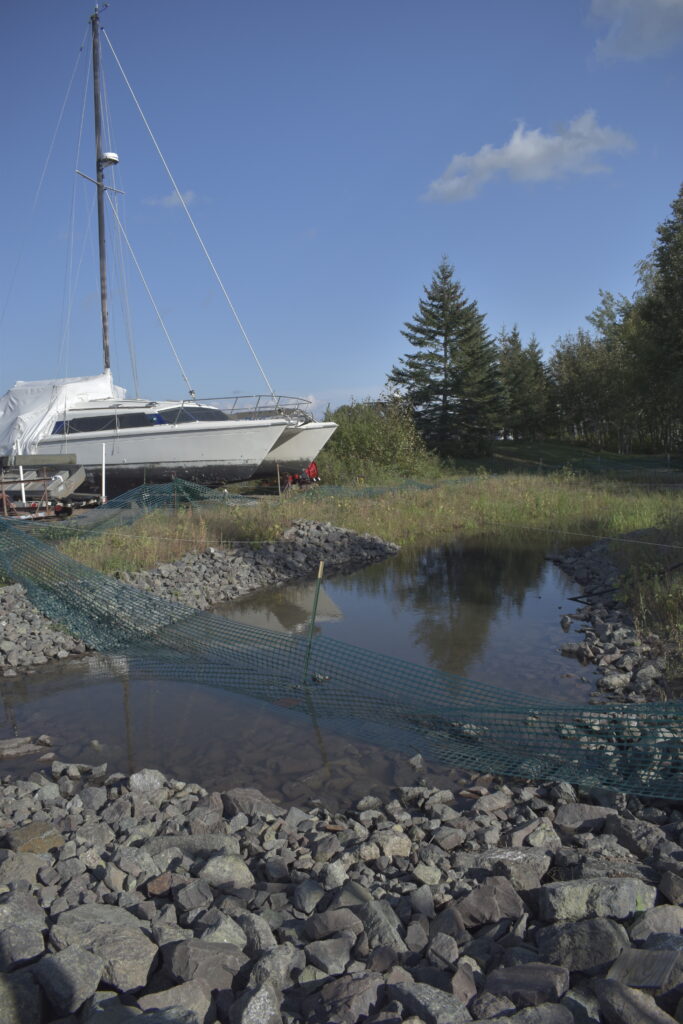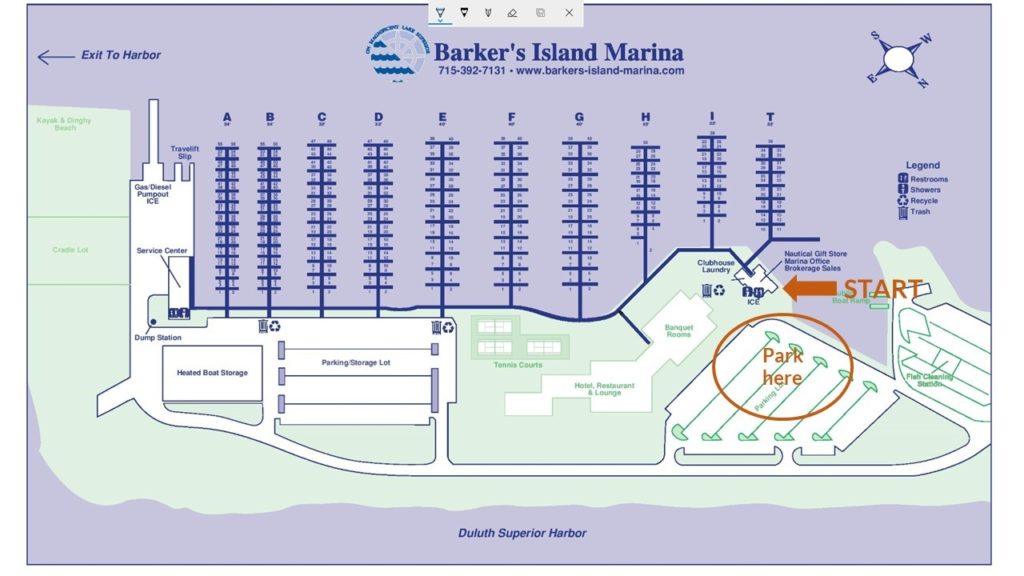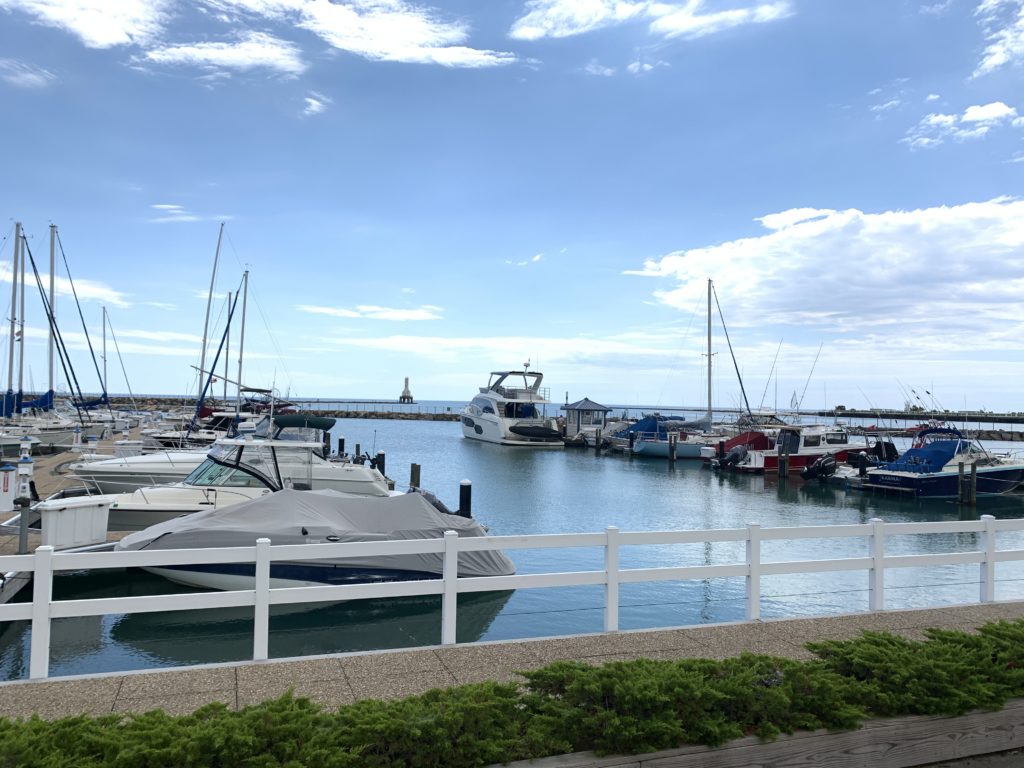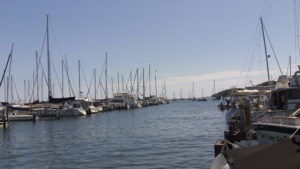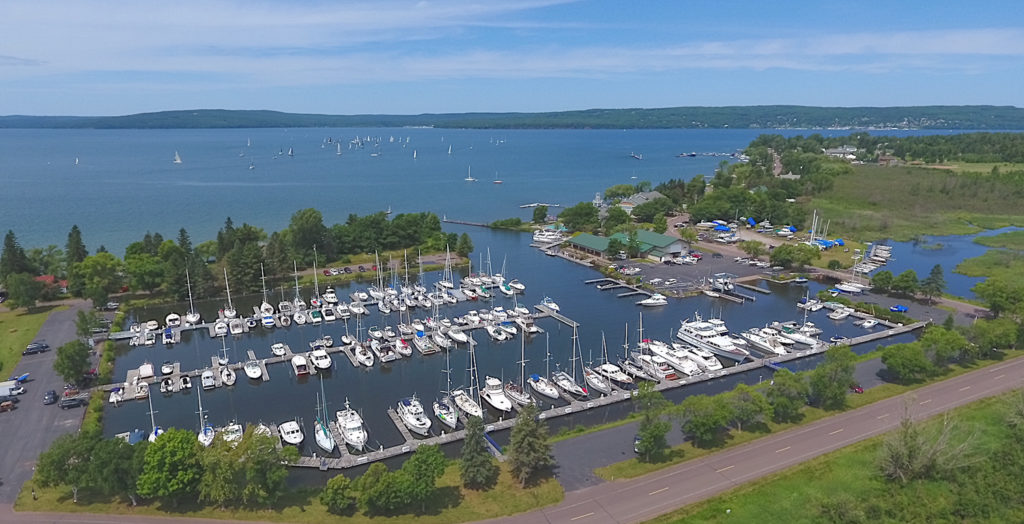Updated Wisconsin Clean Marina Guidebook benefits boaters and marinas
by Elizabeth White
It’s National Safe Boating Week and the runup to the unofficial kick-off of summer, Memorial Day, which makes it a good time to spotlight the news that the Wisconsin Clean Marina Program has an updated tool to help marina owners and operators meet state and federal requirements, protect water quality and save money and resources.
Theresa Qualls, Wisconsin Clean Marina coordinator, rolled out the third edition of the “Wisconsin Clean Marina Best Management Practices Guidebook” at the Wisconsin Marine Association Conference in Wausau last fall. The guidebook includes a checklist of best management practices (BMPs) organized by topic (for example, stormwater management or petroleum control) and color-coded by requirement status (mandatory by law, required for Clean Marina program or recommended). That checklist is followed by chapters with complete explanations and suggestions for meeting each requirement. Supplemental material includes boater rack cards; samples of signage; stormwater pollution prevention plans; spill prevention, control and countermeasure plans; emergency response plans; and contracts.
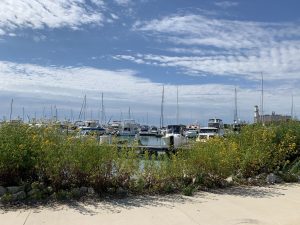
Port Washington Marina is certified as a clean marina. Photo: Mari Mitchell
Marinas, related industries and services contribute more than $2.7 billion to Wisconsin’s economy. Through the initiative, marinas can prevent pollution and protect fish, wildlife and public health. They know that clean water is important to boaters and Wisconsin’s coastal communities
For marinas that are interested in becoming certified Clean Marinas, instructions for certification and the necessary forms are included in the guidebook.
2022 was a successful year for the Clean Marina Program with two new, two re-certified and two new pledged Clean Marinas—bringing the total current number of certified Clean Marinas to 22.
Julia Noordyk, Wisconsin Sea Grant water quality and coastal communities specialist, said, “The guidebook is a comprehensive tool to help marinas adopt a range of practices that create safer and healthier places to work and recreate along the Great Lakes.”
The guidebook was reviewed by members of the Clean Marina Technical Team (marina operators and staff from the Wisconsin Coastal Management Program, Wisconsin Department of Natural Resources and Wisconsin Sea Grant) and additional subject area experts and regulatory agency representatives.
Qualls said, “As the program continues to grow, the updated guidebook will be a valuable resource providing marinas with current information to implement practices and become certified. 2022 was a great year working with marinas throughout the state as they do their part to protect water quality for boaters to enjoy.”
The guidebook is available for download from the Wisconsin Clean Marina Program website, go.wisc.edu/w62790. There’s also a recent video about a marina operator talking about the program go.wisc.edu/36l2l9
The Wisconsin Clean Marina Program is administered by the University of Wisconsin Sea Grant Program in partnership with the Wisconsin Marine Association, Wisconsin Coastal Management Program, Wisconsin Department of Natural Resources and Fund for Lake Michigan.
The post Updated Wisconsin Clean Marina Guidebook benefits boaters and marinas first appeared on Wisconsin Sea Grant.News Releases | Wisconsin Sea Grant
News Releases | Wisconsin Sea Grant
https://www.seagrant.wisc.edu/news/updated-wisconsin-clean-marina-guidebook-benefits-boaters-and-marinas/?utm_source=rss&utm_medium=rss&utm_campaign=updated-wisconsin-clean-marina-guidebook-benefits-boaters-and-marinas

